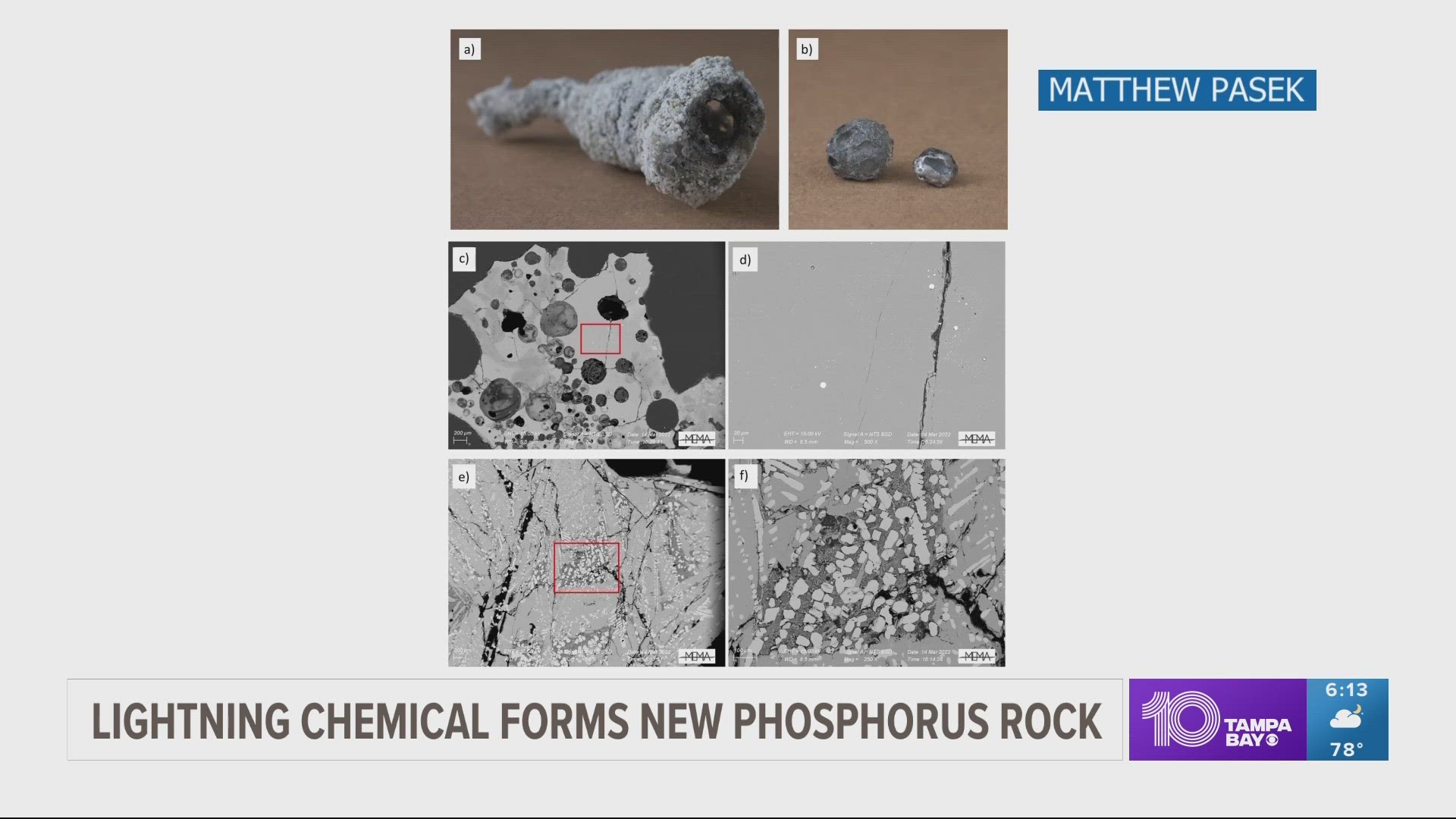NEW PORT RICHEY, Fla. — It's not something that happens every day when a person finds an item never seen on Earth before, but a geoscientist with the University of South Florida did exactly that.
In a New Port Richey neighborhood, lightning struck a tree and that's when Matthew Pasek discovered the bolt led to the formation of a new phosphorus material, USF said in a news release Tuesday.
“We have never seen this material occur naturally on Earth – minerals similar to it can be found in meteorites and space, but we've never seen this exact material anywhere,” Pasek said in a statement.
The unique material was found in a rock, which was the first time in solid form on Earth and could possibly represent a member of a new mineral group.
Pasek said in a recent study that he examined how occurrences that require high energy, such as lightning, can cause rare chemical reactions and, in this case, it resulted in a new material that is transitional between minerals found on Earth and space minerals.
“When lightning strikes a tree, the ground typically explodes out and the surrounding grass dies, forming a scar and sending electric discharge through nearby rock, soil and sand, forming fulgurites, also known as ‘fossilized lightning’,” Pasek said in a statement.
Assuming the solid material had value to it, New Port Richey homeowners decided to sell the discovered "lightning scar," the news release mentioned. Pasek then bought the material and began working with Luca Bindi, a professor of mineralogy and crystallography at the University of Florence in Italy.
The USF geoscientist said it's important for people to know how much energy lightning has because then they can understand how much damage a lightning strike can cause and the danger it poses.
“Florida is the lightning capital of the world and lightning safety is important – if lightning is strong enough to melt rock, it can certainly melt people too,” he stated.
Given how rare the material is, Pasek said it's unlikely it could be mined for uses similar to other phosphates.
Pasek still plans to do more investigation on the material and determine if it could officially be declared a mineral and hopes to draw more awareness to the scientific community.

